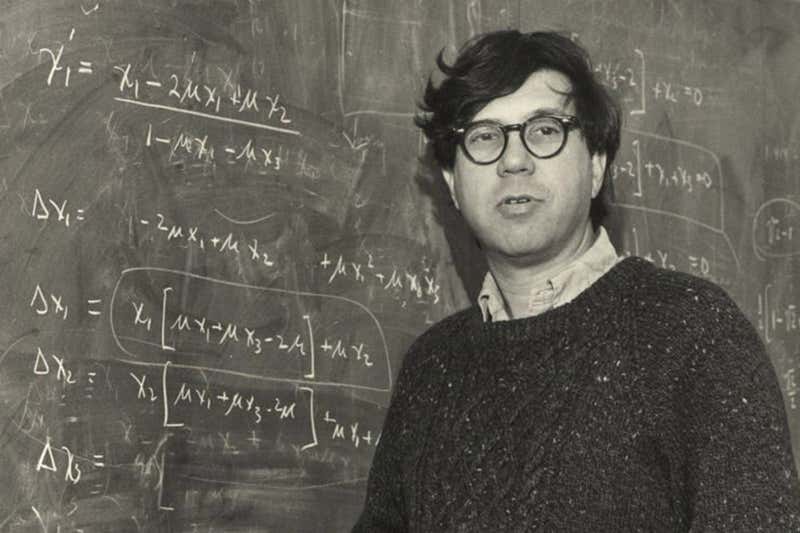Letter from the Editors
Volume 25, no. 3, Killing in the Name Of

A naive observer of human civilization would perhaps conclude that humans have progressively increased their capacity for self-destruction: from spears, bows, arrows, to guns and cannons, to intercontinental ballistic missiles, atomic bombs, and drones. While it may be unwise to reduce complex social processes to advancements in machinery, the historical trajectory of capitalism does seem to follow a path towards production of ever more sophisticated weaponry. It is thus worth our while, in this issue, to explore the logic of militarism, and name the roles that science plays in the systems of coordinated killing.
A militaristic society is one that allocates an extraordinary amount of resources to the use of force. It is not only the material dedication to a standing military, police, and security apparatus, but also the legal structures, civil institutions, and cultural norms that organize labor and technology toward destruction. Jean Jaurès, the French socialist leader and anti-war activist who was assassinated on the eve of the First World War, once likened capitalism’s propensity for war to the clouds’ propensity for rain. While militaristic societies and wars existed long before capitalism, there is a qualitative difference between the militarism of antiquity and the militarism of today—not least due to the ferocious accumulation of capital in modern societies.
When a small minority of individuals can hoard obscene wealth amidst seas of abject poverty, their private property must be maintained by physical force: fences, walls, borders, and other forms of violence to maintain inequality. Militarism not only upholds the status quo, it is what allows capital to come into this world “dripping from head to foot, from every pore, with blood and dirt.”1 At a systemic level, militarism may counteract capitalism’s periodic crises of overaccumulation by utilizing society’s productive capacity toward armaments, as in the case of the Second World War generating effective demand for industries. Destruction and mass killing then become the means of consumption and at the same time create new spaces for capital to penetrate.2 The former US Secretary of State Madeleine Albright puts the ideology of militarism bluntly: “What’s the point of having this superb military . . . if we can’t use it?” Every war is waged and justified differently, but all are intimately linked to the (il)logic of capital. Militarism facilitates the extraction of natural resources, exploitation of labor, and development of technology for capital accumulation.
Science and militarism engage in intimate intercourse both in their shared history and functions within a capitalist society, reinforcing each other economically as well as ideologically.
It is for the purpose of the development of technology that the role of science becomes apparent in militarism, capitalism, and imperialism. Modern science3 as we know it was born out of the Manhattan Project, when the state guided the market’s invisible hands toward large research enterprises for clear military-geopolitical goals.4 Through the growth of the military-industrial complex, the United States also came to dominate scientific production. Before the Second World War, only 15 percent of Nobel Laureates were conducting research in the United States; from 1945 onward, it rose to 61 percent.5 While this observation may seem trivial, the center of world science shifting concurrently with that of military power is no coincidence.6 Science and militarism engage in intimate intercourse both in their shared history and functions within a capitalist society, reinforcing each other economically as well as ideologically. Large sections of this issue are thus devoted to revealing their astonishing inseparability.
But the weapon of criticism cannot replace criticism of the weapon; theories must be put into action to become a material force for the masses. Anti-militarism organizing gave birth to Science for the People in 1969. The mass killing in Vietnam evoked social and political consciousness in a generation of scientists. For twenty years, SftP agitated tirelessly against the scientific-military-industrial complex, stood steadfast against the co-optation of science for anti-human ends, and left a legacy of radical action that we can revitalize and build on today. Technologies have changed, political economic structures have shifted, and the scientific labor force has been reconstituted, but the same struggle remains: anti-militarism. To make science serve the people, we must first stop its use against the people.
In the time when more than half of the national budget in the United States is directed to the use of force, and in the face of more and more advanced technology built for the purpose of mass killing, our resistance may seem incommensurate and our task especially daunting. But astute observers of human civilizations understand that technology is made by human hands. It is in the act of resistance that we exert our human agency collectively to change the course of history. Weapons cannot kill without the perverted social relations through which they are wielded. Science is only destructive if we allow it to be.
—Volume 25, no. 3 editorial collective
— We will be posting articles online on a rolling basis. Subscribe today to read the issue in full! —
Notes
- Karl Marx, Capital: A Critique of Political Economy Volume One (New York: Penguin Books, 1976), 926; Marx described the violent process of “primary/original accumulation” (persisting to this day) that grafts lands and people previously external to the system into the domain of capital. Rosa Luxemburgh in Accumulation of Capital attributed militarism as a fundamental process linking original accumulation to imperial expansion. See also John Bellamy Foster, Brett Clark, and Hannah Holleman, “Capitalism and Robbery: The Expropriation of Land, Labor, and Corporeal Life,” Monthly Review 71, no. 7 (December 1, 2019), https://monthlyreview.org/2019/12/01/capitalism-and-robbery/.
- David Harvey, “Capital Bondage” in New Imperialism (Oxford University Press, 2003), 87–136.
- We do not distinguish social vs. natural sciences, nor basic vs. applied sciences. These are, in our opinion, ideological delineations.
- Philip Mirowski, Science-Mart: Privatizing American Science (Harvard University Press, 2011).
- “Nobel Prize – Laureates,” May 31, 2017, https://public.opendatasoft.com/explore/dataset/nobel-prize-laureates/.
- David F. Noble, America by Design: Science, Technology, and the Rise of Corporate Capitalism (Oxford University Press, 1979).





